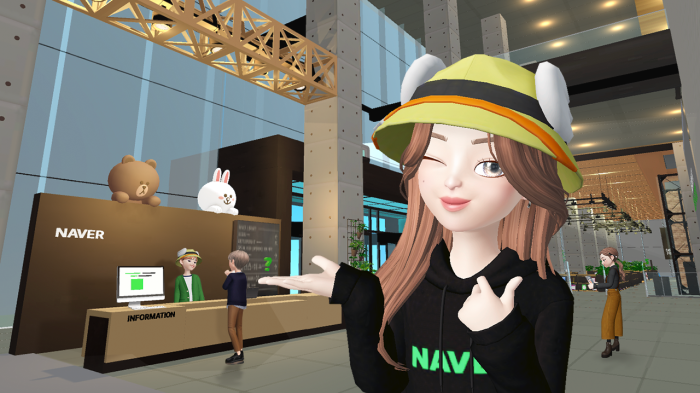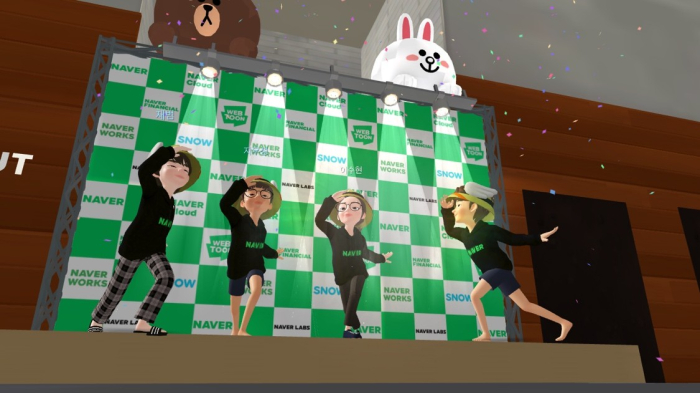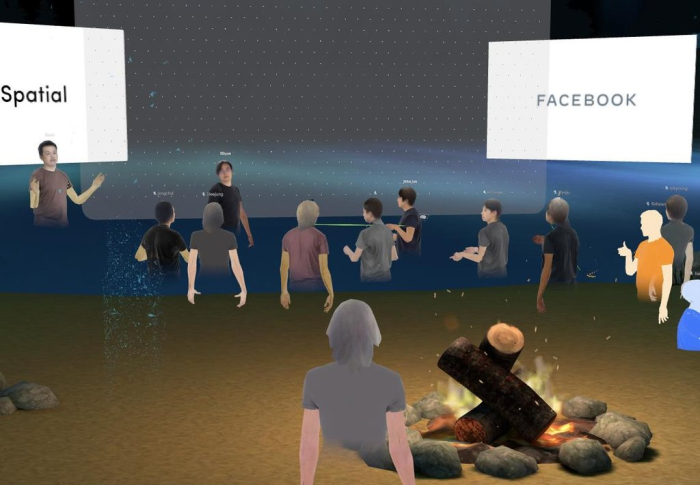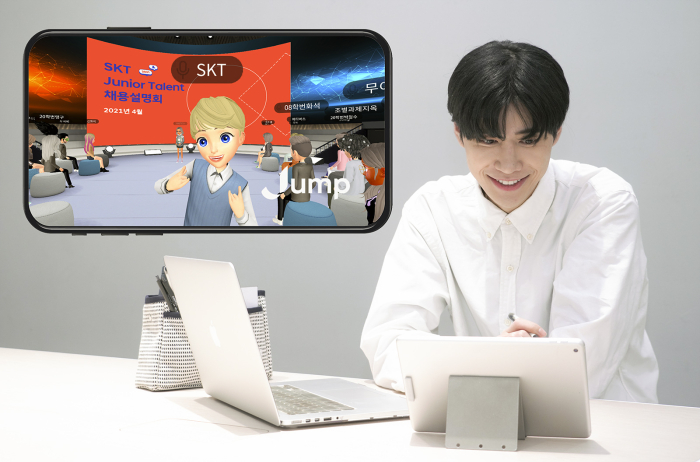Virtual space
Metaverse makes digital nomads the new norm
Virtual offices emerge as new trend amid metaverse boom; removing the barriers of time and space
By May 26, 2021 (Gmt+09:00)
4
Min read
Most Read
LG Chem to sell water filter business to Glenwood PE for $692 million


KT&G eyes overseas M&A after rejecting activist fund's offer


Mirae Asset to be named Korea Post’s core real estate fund operator


StockX in merger talks with Naver’s online reseller Kream


Meritz backs half of ex-manager’s $210 mn hedge fund



It’s been about four months since Lee Seul, a manager at real estate app Zigbang, worked from the company office in Gangnam, one of South Korea's major business districts. And today, instead of being surrounded by towering skyscrapers and traffic congestion, Lee is accompanied by the sound of waves and a sea breeze as she gets ready for work. Lee is enjoying her one-week stay in Jeju, a Korean island about 280 miles away from her workplace.
But the distance has almost no impact on Lee's work. She logs in to Gather.Town, a virtual social platform that looks exactly like the Zigbang office in Gangnam. Once logged in, Lee positions her avatar next to her co-worker's avatar, which then launches a video conference. Since adopting the virtual system, Zigbang has emptied its Gangnam office to transition to a digital office system.
The metaverse is increasingly replacing the physical office as remote working becomes the new norm due to the global COVID-19 pandemic. In particular, virtual offices that embrace avatars are popular because they address some of the challenges of remote working.
Having a virtual office that looks exactly like the physical office space, and having a personal avatar that interacts with other avatars make the virtual working experience all the more real. And it’s surprisingly efficient.
“It removes unnecessary communication costs while enhancing work efficiency,” said Ahn Sung-woo, the chief executive of Zigbang.

This trend has fueled intense competition among tech firms angling for the lead in the metaverse office market.
For example, Facebook's virtual reality (VR) headset Oculus Quest 2 supports Spatial, a virtual workplace app. When a user wears the VR headset, a 3D avatar that looks like the user will copy the user's movements. Also, Microsoft released a mixed reality workplace platform Mesh, allowing users to collaborate and work together in a virtual space.
Meanwhile, the office real estate market is likely to be affected by the metaverse boom as virtual offices become more widespread.
“Until recently, your office had to be in a major location, such as the tech hub Teheran-ro (a street in the Gangnam) to hire good talent -- but that's not the case anymore. Once metaverse offices become a natural thing, paying expensive rent won't be necessary,” said Ham Young-jin, the head of big data lab at Zigbang.
METAVERSE BREAKS LIMITS OF TIME AND SPACE
Many people still wonder what the metaverse is. Metaverse, combining “meta” and “universe,” is a shared virtual space that converges virtual and physical realms to bring imagination to life. And early adopter, trend-sensitive companies are emerging as pioneers in the avatar-populated metaverse.

Earlier in January, Korean platform giant Naver Corp. welcomed new employees who began their first day at work in a virtual space due to the COVID-19 pandemic. But, they were still able to tour Naver's headquarters, eat together, take group photos and participate in team projects -- all in the form of avatars created on the company's metaverse platform, Zepeto.
It’s not only Naver that is making use of the metaverse. Many companies at home and abroad are adopting metaverse tools for projects, meetings and job training.
Last month, Facebook Korea held a virtual media roundtable, which did not require any COVID-19 quarantine guidelines. Reporters wore the VR headset Oculus Quest and attended the online event through the virtual workplace app, Spatial.

In a few years or, attending meetings or job training in a physical space may seem an outdated practice -- a folksy tale to be passed on to the grandchildren -- since the metaverse is changing the way people work. This is also why Roblox, a popular metaverse gaming app in the US, announced plans to extend its services to education and work.
METAVERSE ATTRACTS GLOBAL COMPANIES ACROSS ALL INDUSTRIES
Companies are actively incorporating metaverse tools to train their employees. Even before the global pandemic, US-based grocery retailer Walmart used VR to train employees, such as educating new hires how to handle customers in a virtual space before interacting with them in a physical space to minimize the risk of damaging the company's brand image.
Even when an employee gets promoted to a manager, the evaluation is carried out in a virtual space that is designed like an actual Walmart store. In this space, the employee’s ability as a manager is tested in various situations such as dealing with an angry customer, a filthy aisle, and an underperforming employee.
UK-based carmaker Jaguar Land Rover also uses AR technology to train employees, such as teaching them how to repair cars in a virtual space. Also, airplane manufacturer Airbus uses an AR system, MiRA, to provide 3D data on all of its aircraft to engineers.

Even wide-scale job searches are carried out via the metaverse. Last month, Korea's largest mobile carrier SK Telecom hosted a recruitment fair via its virtual space platform, Jump Virtual Meetup, attracting over 600 participants.
The metaverse market is poised for drastic and swift growth, driven by increased adoption from companies. According to an AR, VR research firm Artillery Intelligence, the corporate VR market size is expected to surge over fourfold from $829 million in 2018 to $4.3 billion in 2023.
Write to Shim Sung-mi and Koo Eun-seo at smshim@hankyung.com
Danbee Lee edited this article.
More to Read
-
 StartupsStartup funding: Metaverse platform Anipen; autonomous vehicle simulator Morai
StartupsStartup funding: Metaverse platform Anipen; autonomous vehicle simulator MoraiApr 27, 2021 (Gmt+09:00)
1 Min read -
 Kosdaq IPOsMetaverse startups enjoy unrivaled attention on Kosdaq
Kosdaq IPOsMetaverse startups enjoy unrivaled attention on KosdaqMar 31, 2021 (Gmt+09:00)
2 Min read -
 M&AsNaver invests €115 mn in Spain’s virtual marketplace Wallapop
M&AsNaver invests €115 mn in Spain’s virtual marketplace WallapopFeb 25, 2021 (Gmt+09:00)
2 Min read -
 Virtual influencersVirtual influencers emerge as brand ambassadors
Virtual influencersVirtual influencers emerge as brand ambassadorsFeb 11, 2021 (Gmt+09:00)
4 Min read
Comment 0
LOG IN


